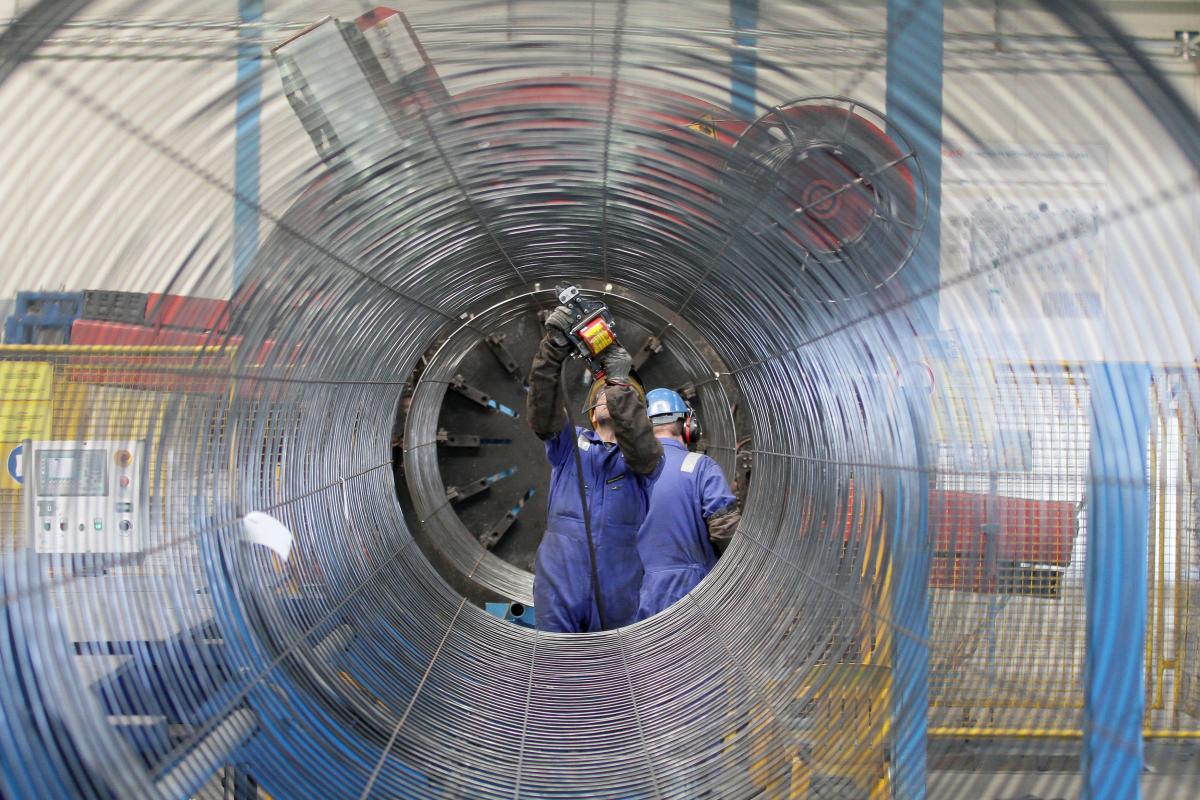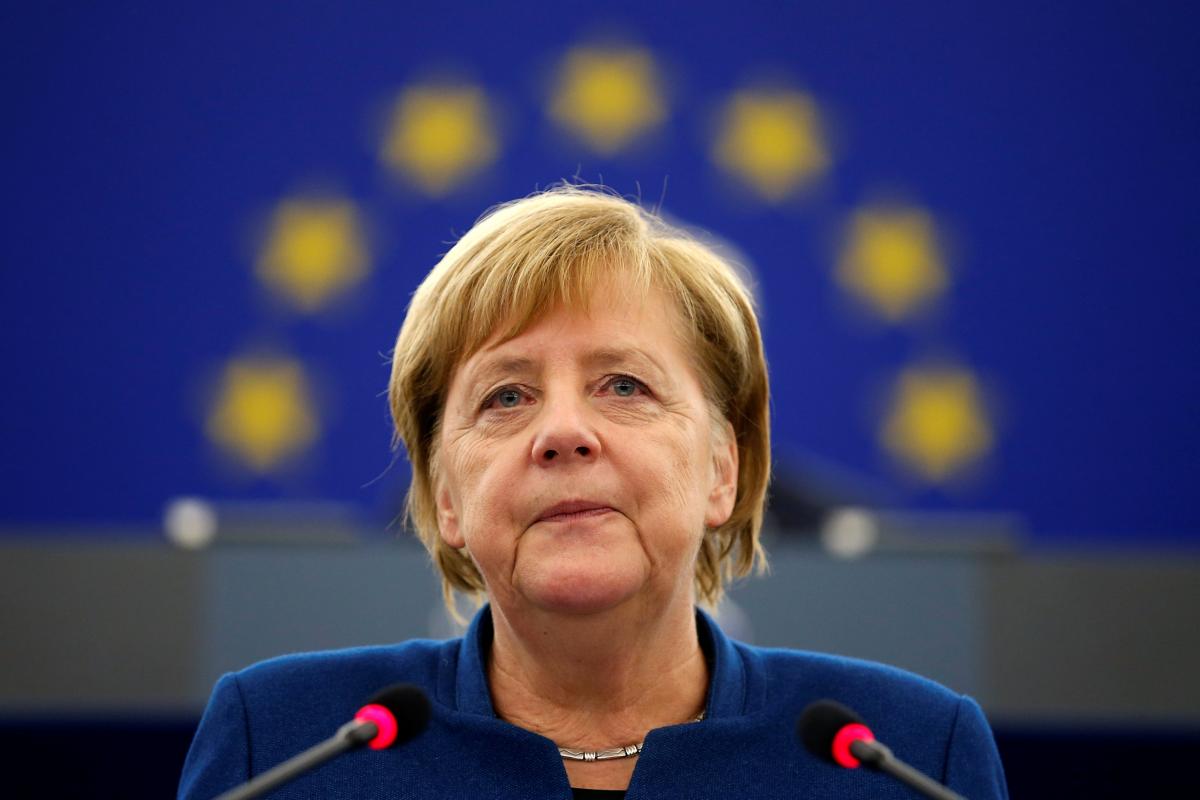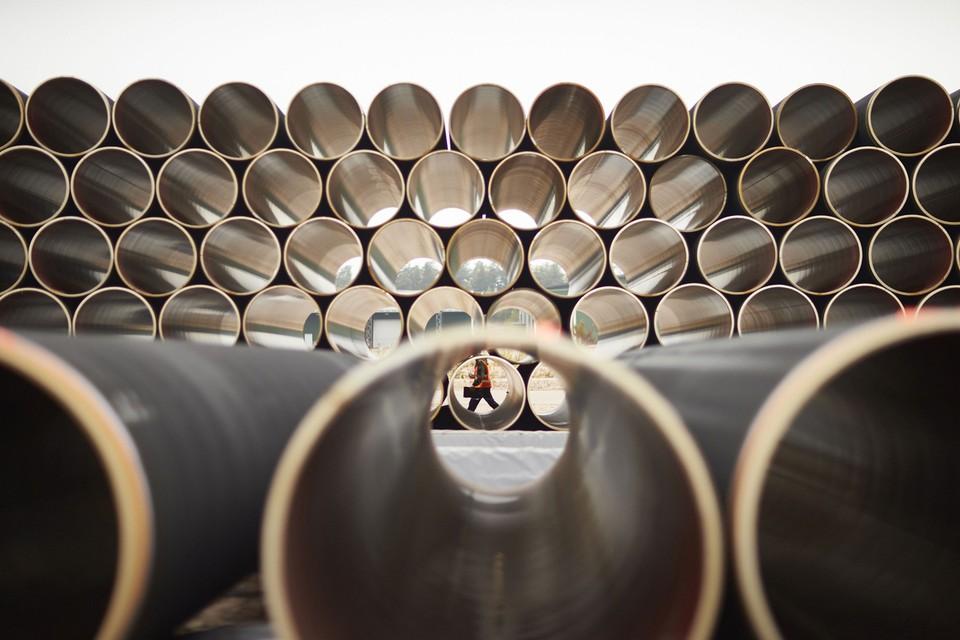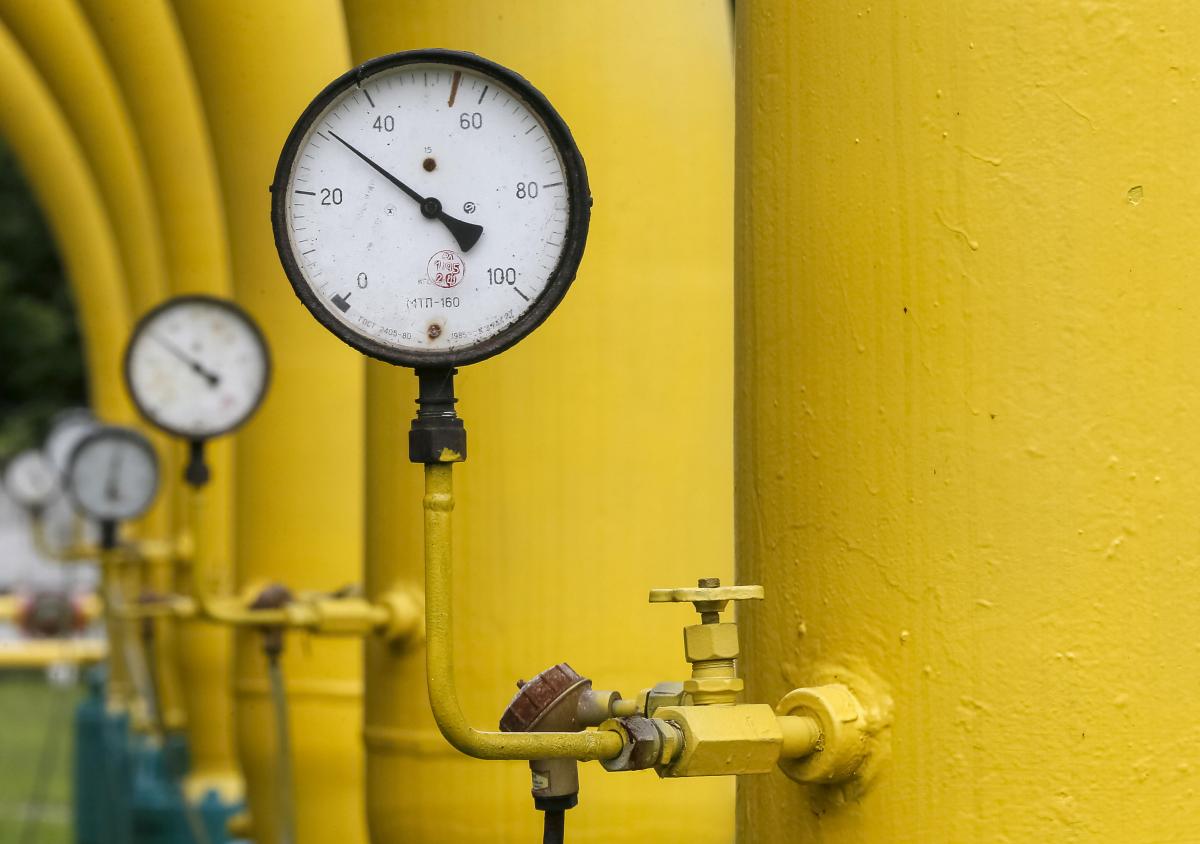
Nord Stream 2: Is Europe aware of the Russian noose?
Russia's aggression against Ukraine in the Black Sea has raised to another level in the international arena the issue of the construction of the Nord Stream-2, the Kremlin's noose for the European Union. European officials have already submitted to Parliament a resolution on halting support for the Russian project, but it is only scheduled to be heard in March. UNIAN figured out what Ukraine should expect from a Europe that is constantly "in doubt."
The incident with the seizure of Russian Ukrainian naval boats in the Kerch Strait raised another wave of opposition to the construction of the Nord Stream 2 gas pipeline bypassing Ukraine. The first country to voice a categorical statement was the United States who called on European countries to finally stop supporting the Gazprom project, set to link the Russian coast with Germany via the Baltic Sea, while leaving the Ukrainian gas transmission system with nothing.
“The United States government has taken a very strong position … in support of Ukraine. We would like other countries to do more as well. That is something that’s enshrined in our National Security Strategy, encouraging other countries to help one another around the world so that the United States isn’t completely – I don’t want to say shouldering the burden, but so the United States isn’t handling these issues chiefly alone,” said State Department spokeswoman Heather Nauert.
According to her, the U.S. government will shortly hold talks on the issue with their European allies.
Ukraine's top officials have once again warned the EU of the threat of Nord Stream 2. President Petro Poroshenko said that Russian leader Vladimir Putin, in the matter of protecting the gas pipeline, could resort to an attack on the Baltic states and Scandinavia.
“Putin may decide to defend Nord Stream 2, and therefore decide to attack the Baltic states, the Scandinavian countries [those opposing the project]. There are no 'red lines' for Putin,” Poroshenko said, stressing that in the current situation, it is very important for global security to speak with one voice.
Prime Minister Volodymyr Groysman called the Nord Stream 2 gas pipeline project a form of a disguised war against Europe and European consumers. “Nord Stream 2 is a form of disguised war against Europe. We know what it is to be dependent on Russia in energy. We know from our own experience how dangerous it is. Therefore, we are now considering the project as Russia's geopolitical weapon,” Groysman said, adding that Ukraine’s preservation of the status of a priority gas transit country is of great “significance in terms of security and politics" for all of Europe.”
The European Union, at first glance, finally took into account all the challenges arising. A resolution has been introduced to the European Parliament, which states that Nord Stream 2 deepens the EU’s dependence on Russian gas supplies, threatens the EU’s internal market, and runs counter to the EU’s energy policy, and therefore needs to be stopped. The European Parliament also emphasizes the need to end the partnership and cooperation agreement that was concluded between the EU and Russia in 1997 and that has been annually extended since then. According to MEPs, cooperation with Russia remain only in the areas that are necessary and of mutual interest, while security guarantees for the EU and its neighboring countries should be respected. The document will be reviewed by the European Parliament in March.
Meanwhile, Germany, which is more interested in Nord Stream 2 than others, because it will allow them buying Russian gas directly and give it the status of Europe's main gas hub, has remained neutral so far, making some strange statements, to say the least.
For example, German Foreign Minister Heiko Maas believes that Berlin's refusal from the Nord Stream 2 gas pipeline will not stop the project, but will reduce the ability to defend the need for gas supplies via Ukraine. Maas says that Nord Stream 2 will be built anyway, but no one will stand for an alternative gas transit route via Ukraine, which is why Germany considers it important to remain "politically active."
German Chancellor Angela Merkel called the project exclusively economic and noted that it would be too radical to completely abandon it. However, according to her, Berlin could reduce the volume of gas supplies through the new pipe.

Russia, with the support of Germany, also declares that it is not going to give up Nord Stream 2, although it promises to load Ukraine's GTS, while reducing significantly, to just 10-15 billion cubic meters. For Ukraine, this would be practically zero transit, a loss of $3 billion a year and 3% of GDP.
And while disputes are raging over the pipe, Gazprom has announced the completion of the laying of Nord Stream 2 pipes in Germany's coastal zone.
“The construction of the gas pipeline is proceeding in accordance with the schedule. So far, in total, about 300 km of pipes have been laid at the bottom of the Baltic Sea. In particular, the laying of both threads in the coastal zone of Germany has been completed, while work is underway in the territorial waters and in the exclusive economic zone of Germany, as well as in the exclusive economic zone of Finland,” says a statement by Gazprom.
Experts believe that Europe’s rejection of Nord Stream 2 is quite likely. In the West, many have begun to realize that this is not just a gas pipeline, but the Kremlin’s infrastructural weapon, a mechanism for corrupting European political elites, above all, those in Germany. Moreover, the situation for supporters of Nord Stream 2 in Europe is very nervous now.
Decision time
President of the “Strategy-XXI” Center for Globalization, Mykhailo Honchar, believes that everyone in the West realizes that Russia’s antics cannot be left without an adequate response, which, moreover, should be asymmetric. Moscow got away with too much, but patience is not unlimited. The absence of a reaction, or a sluggish reaction, in the first place, on the part of Europe, does not lead to proper results. That is why it is completely logical that a wave of discontent with Russia's aggressive behavior has risen in the United States, UK, and Germany.
"Therefore, it is possible that the Nord Stream2, Putin's beloved brainchild, will be abandoned. Hence the turbulence around this topic and a wave of statements from the various parties – governments and parliaments... Berlin is in panic, as can be seen from the statement of the German foreign minister, which is difficult to comprehend. Moreover, the longer the pipeline is built, the more resistance it causes. In Europe, everyone likes to do things by consensus. But it's just not there,” the expert said.
According to Honchar, the logic of Germany and Russia in this matter was linear – let them talk the talk, while we'll just keep implementing the project, and then everyone will take it for granted. But everything worked exactly the opposite. Resistance to the project is growing, and it has intensified against the background of the intensification of Russian aggression in the Black Sea.
“Europe clearly saw that Russia first builds some infrastructure, and then, arguing that it needs to be protected, strengthens its military presence. The escalation in the Azov Sea and the Kerch Strait began just when Russia, albeit partially, put into operation their Kerch Bridge. They say that Ukraine doesn't like the bridge, and neither does NATO, and, to foil any attempts to blow it up, they began boosting military presence in the region. Such Russian logic can be easily reflected on the Nord Stream 2. The situation will be exactly the same. And Europe is now considering this,” Honchar stressed.

Head of the Energy Research Center, Oleksandr Kharchenko, also believes that the process of resistance to Nord Stream 2, despite Germany’s lobbying support, has moved to the active phase, and the Kremlin will be unable to stop it.
“The main support of Nord Stream2 comes from Germany and Austria, which have deep and long-standing ties with Russia. Germany has considered Russia a reliable source of energy for the past 40 years, that is, in fact, a resource colony. Berlin doesn't want to fathom that the “gas station” could go berserk. But the West began to actively respond to what is happening, the process is underway. And it will be impossible to stop it,” the expert noted.
But if, indeed, the implementation of the Nord Stream2 is frozen, the issue of the modernization of the Ukrainian GTS will arise, which Europe has failed to address for many years.
“Aid” with no guarantees
Throughout the years of independence, Ukraine has been offering the European Union to enter the management of its gas transmission system in order to modernize it so that gas transit is reliable and stable, thus minimizing any geopolitical risks.
For break-even operation, the GTS must pump at least 40 billion cubic meters of gas annually, although the maximum technical capacities are at 140 billion cubic meters. Moreover, Ukraine's preservation of the status of a priority gas transit country is of great importance for Europe. Prime Minister Volodymyr Groysman once again mentioned this during his Germany visit.
“We offered our partners in the West to manage our GTS together. Its capacity is 140 billion cubic meters. Our gas storages allow storing stocks up to 1,000 days. This is a great potential,” said the head of government.
But there were no effective proposals from the EU, again.
Honchar believes that the European Union does not fully understand all that is happening around the gas transmission system of Ukraine due to the fact that there is a standard approach in the EU. Say, you must first conduct the unbundling of Naftogaz, move the GTS into a separate enterprise, and only then will Europe begin discussing the fate of the Ukrainian pipe.
“They do not understand that we cannot do the unbundling of Naftogaz all at once. And it's not only due to the fact that there are contradictions in Naftogaz and the government's positions, but also because there is a problem with the existing transit contract with Gazprom. Plus, there is the decision of the Stockholm arbitration in our favor, which can easily be rejected by Gazprom, which is not going to pay anything. If Naftogaz goes for unbundling and allocates the GTS into a separate enterprise, Gazprom will take advantage of this as an excuse to accuse Naftogaz of unilateral revision of property issues, as, according to the contract, it must be agreed by all parties. Therefore, Europe’s attitude to the issue is surprising,” Honchar said.
According to him, for Ukraine, the question of the future of its GTS is closely linked to the Nord Stream 2. But Europe divides these two concepts. However, if the project is implemented, and also the threads of the “Turkstream” are loaded too, then this will mean only one scenario for Ukraine – zero transit. The capacities built by Russia will be loaded first. At the same time, Europe is saying that later, European companies will come to join the management of Ukraine's GTS.

“For us, it's not participation that's important but the guarantees that the pipe will be loaded. This is the element of misunderstanding. We should have solved this problem much earlier. I think now it will not work out. Next year will be a year of political turbulence associated with the elections. There will be no consensus on the issue. Real decisions will be made in a year. But during this period, Russia will try to complete the laying of the Nord Stream 2 pipes, making everyone take it for granted. When the question is raised of guaranteeing the preservation of transit via Ukraine, we hear a friendly European statement that transit should be preserved. Putin also claims that 10-15 billion cubic meters will GTS, but this is close to zero transit. At the same time, in Europe they say that they will not provide guarantees and tell us to negotiate with the Russians. If we proceed from the words of the European Commission Vice-President Marcos Sefcovic, voiced at the twelfth energy security conference in Bratislava, before Christmas, the EU-Ukraine-Russia tripartite meeting on future gas transit will have taken place, where such guaranties will have been discussed. But no one in the EU is willing to provide guarantees, saying that it's Gazprom who must provide such guarantees, but we all know the "value" of Russian promises. I believe it's our diplomats' drawback. After all, there is Article 274 of the Ukraine-EU Association Agreement, which clearly states that the parties must take into account each other's infrastructural capabilities. That is, Europe must take into account the gas transmission capacity we have. And the position of the European Commission should be in solidarity with ours. First, the capacities of our GTS must be loaded, and only then it's the turn of any other flows. But we hear nothing of the kind from Brussels. No one even recalls that in 2009, the so-called Brussels Declaration on the modernization of the Ukrainian GTS was signed off. The European Union promised our country assistance in the matter. But that was it. That is, when we want to rely on Europe's clear position, we don't find support. Such behavior is not partnership,” the expert noted.
He believes that Ukrainian politicians and officials are afraid to say something frankly to their European counterparts, since there are still a lot of issues that need EU support, such as receiving macro-financial assistance, maintaining the sanctions approach, and that's amid criticism of reforms and anti-corruption efforts in Ukraine...
However, Kharchenko argues that the process of Europeans joining the management of the Ukrainian GTS is underway, and there is progress.
“Despite the lobbying efforts by the Firtash group, represented in the government and lobbied at the level of Deputy Prime Minister Kistion, it will not be possible to stop the process of EU accession to the management of Ukraine’s GTS. Now, active negotiations are underway with several potential partners for the Ukrainian GTS. I am sure that in 2019, we will achieve the result,” said the expert.
Thus, negotiations with the European Union on various "gas" issues are underway, while Nord Stream 2 is being built. And in the issue of freezing the project, Ukrainian diplomacy should "play the first violin." Ukrainian Foreign Minister Pavlo Klimkin said that "we have a common position regarding Russian manipulations, which, unfortunately, are supported by certain European politicians, on the construction of Nord Stream 2." I wish that the minister's efforts as long as those of his subordinates ensured that the “common position” was conveyed to those “certain” European politicians who still did not realize all the risks of Nord Stream 2.
Nana Chornaya

